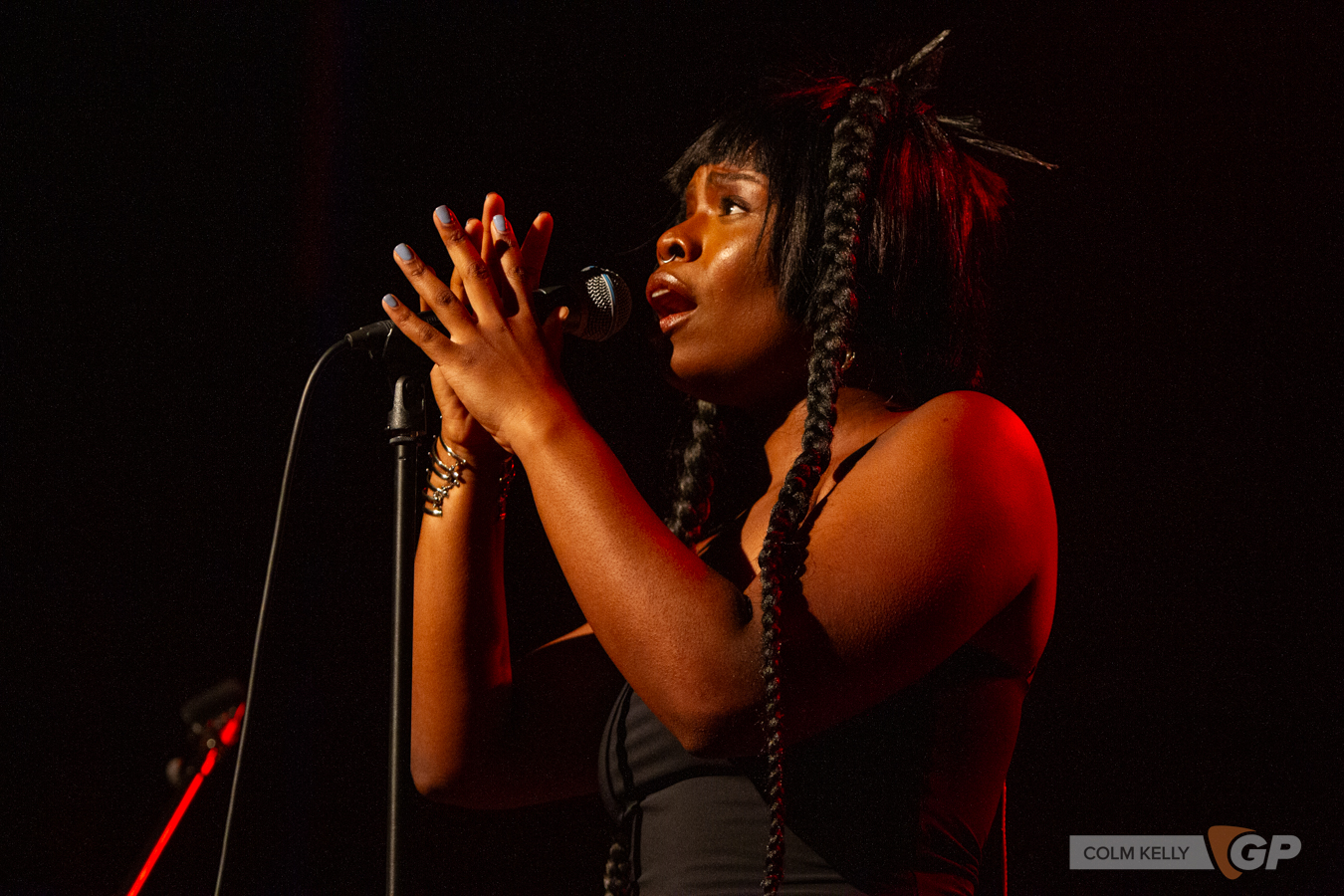It’s been a hectic summer for Laetitia Tamko, more widely known by her stage name Vagabon. The Cameroonian-American multi-instrumentalist and producer has just released her third album Sorry I Haven’t Called and is set to tour North America later this month.
“I didn’t feel like being introspective,” says Vagabons of her latest release, “I just wanted to have fun.” The album follows her intimate and provocative 2017 debut Infinite Worlds, which she followed up in 2019 with her self-titled breakthrough. “This whole record is how I talk to my friends and how to talk to my lovers,” says Tamko. “I think honesty and conversational songwriting can become poetry. There’s beauty in plainly speaking without metaphors and without flowery imagery.”
Before hitting the road, Vagabon took the time to speak with Goldenplec about the new record, the creative process and working with Rostam (Vampire Weekend, Haim, Clairo).

Vagabon at the 3Olympia Theatre, Dublin 5.9.2023 Copyright Colm Kelly
Q: How has the summer been for you ahead of the album?
Pretty nice, I made music videos for my songs “Can I Talk My Shit?” and “Do Your Worst” Oh, I also joined a summer futbol league…
Q: How are you when it comes to the lead-up to album releases? Do you stress the closer it gets or have you made peace with this music finally being out in the world?
With Sorry I Haven’t Called, I was more ready for the world to have this album and to spend time with it.
Q: You've mentioned that 'Sorry I Haven't Called is your fun album, not being too introspective, Was that always what you set out to create or just something it came to be during recording?
Well, it’s a lighthearted record but it has its peaks and valley. I didn’t know what I’d make before I had enough songs and looked at them as a body of work and it revealed itself to me.
Q: Was there any track in particular that took you down the path of the process of ridding yourself of that self-seriousness that many artists and musicians have?
The “ease” I speak of with this album is more abstract than it is literal. It was an exercise for myself in how make an album without feeling tortured.
Q: You created the bulk of this record in Germany, how did that move come about and how important was it to create such dance-centric music in the European capital of electronica?
The dance music history of Germany was not actually a factor in my decision (though it was a nice coincidence) — I have friends who had a house out in the countryside of Germany and I dreamt of it since the moment they told me about it. It didn’t seem so bizarre to just go there and live my dream.
Q: The story of this album started with tragedy with the passing of your friend, was this journey in dance and upbeat music a way for you to make sure you cherish life and remember those who have passed as the vibrant individuals they were rather than the sadness of not having them with you?
Dance was a way of escapism in my time of bereavement. I was very much in a dark place while making this album… I wanted my music making practice at that time to be a space where I could conjure up some release/catharsis.
Q: You completed the album in LA with producer Rostam, was it nice to get his insight on your work and help guide it the final few steps and if so, was that something you were always aware it would need?
I loved working with Rostam on the co-production of the album. It happened so organically and I’m proud of the work my collaborators and I all made on this album.
Q: What do you hope listeners take away from the album as a whole?
I hope it’s an album for those who’ve had their hearts broken, whether by grief, love, loss… that they may seek refuge in this album.
Q: Your heading out on tour, are you excited to take these songs on the road?
Absolutely, performance is an important part of my practice as a musician. Playing with my band and playing for fans and along with the fans, collaborating on making the shows a special night.
Q: If you could relive one music-related moment in your life, what would it be and why?
It’d be the first time I played Primavera Sound Barcelona.
